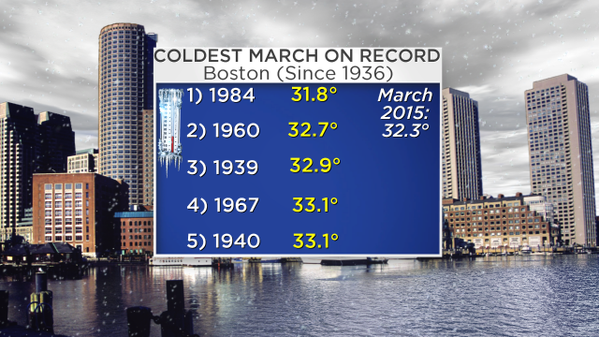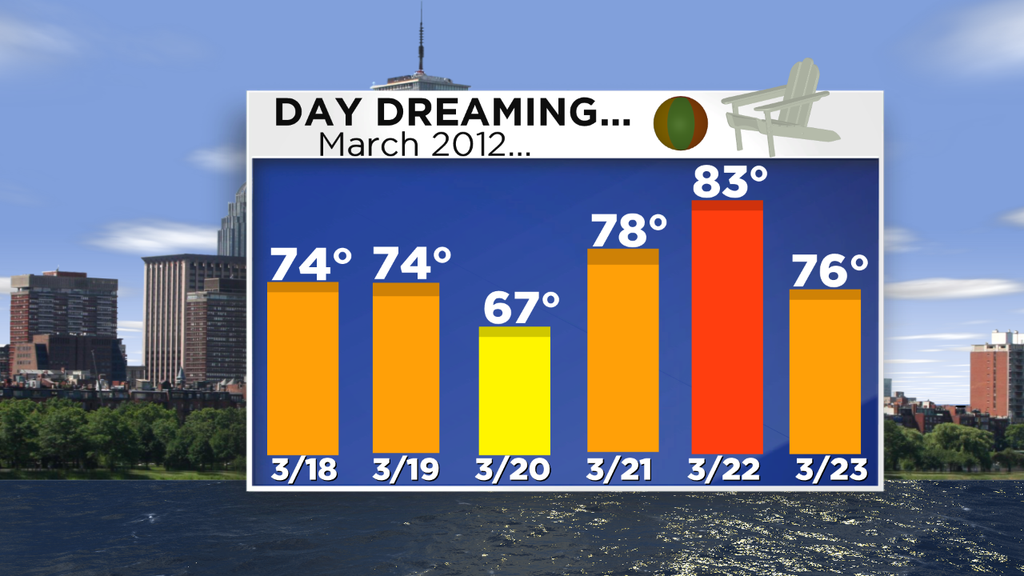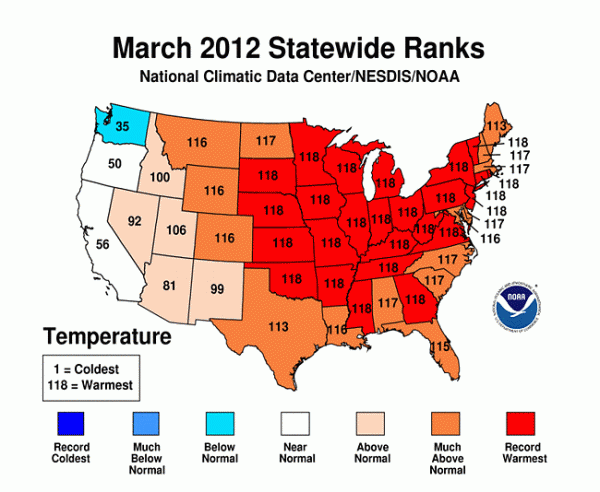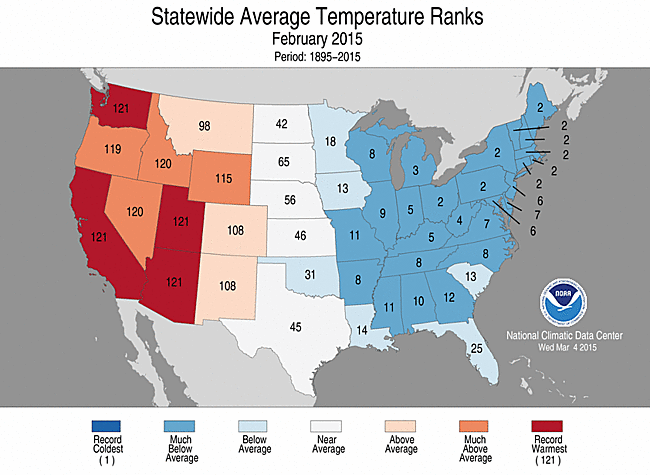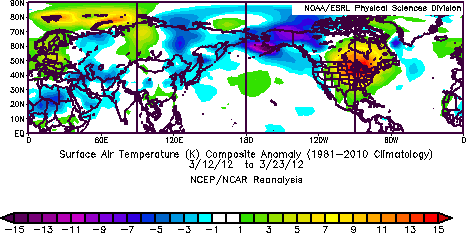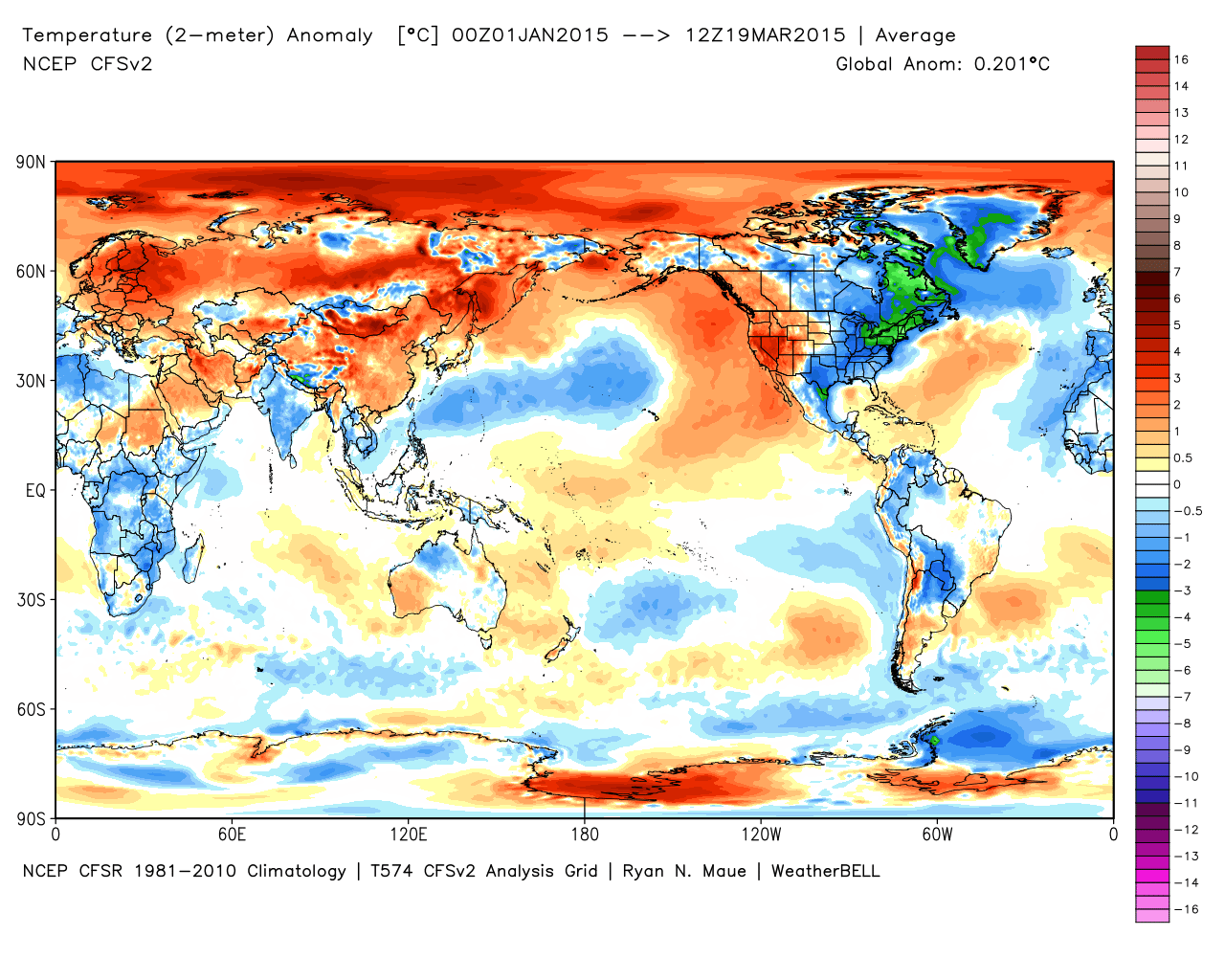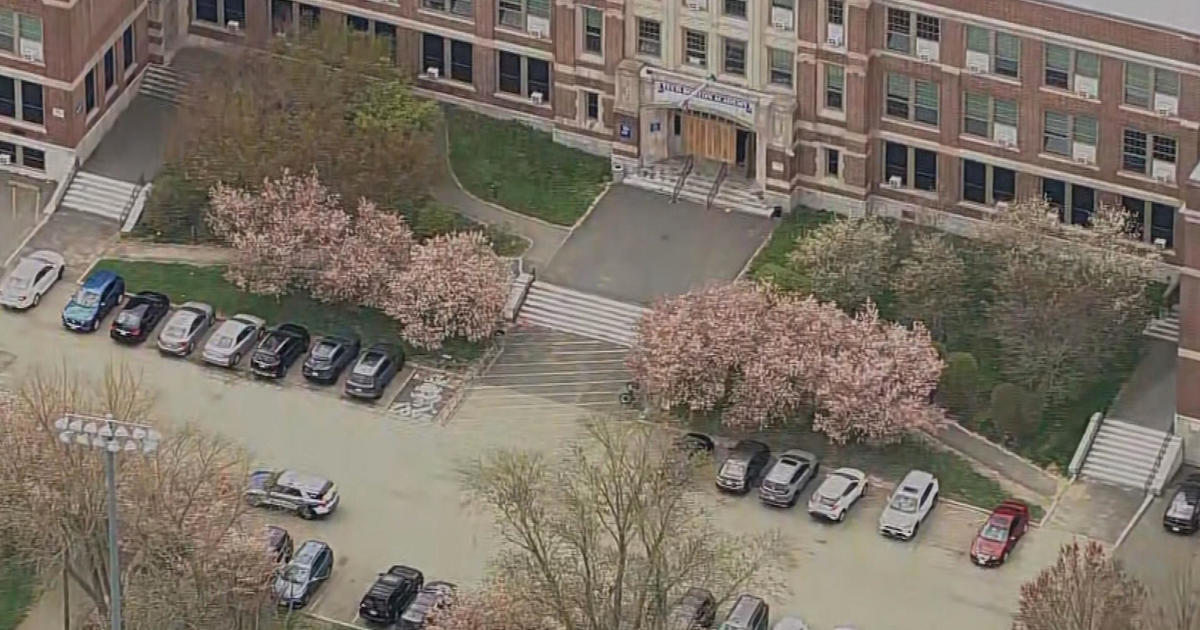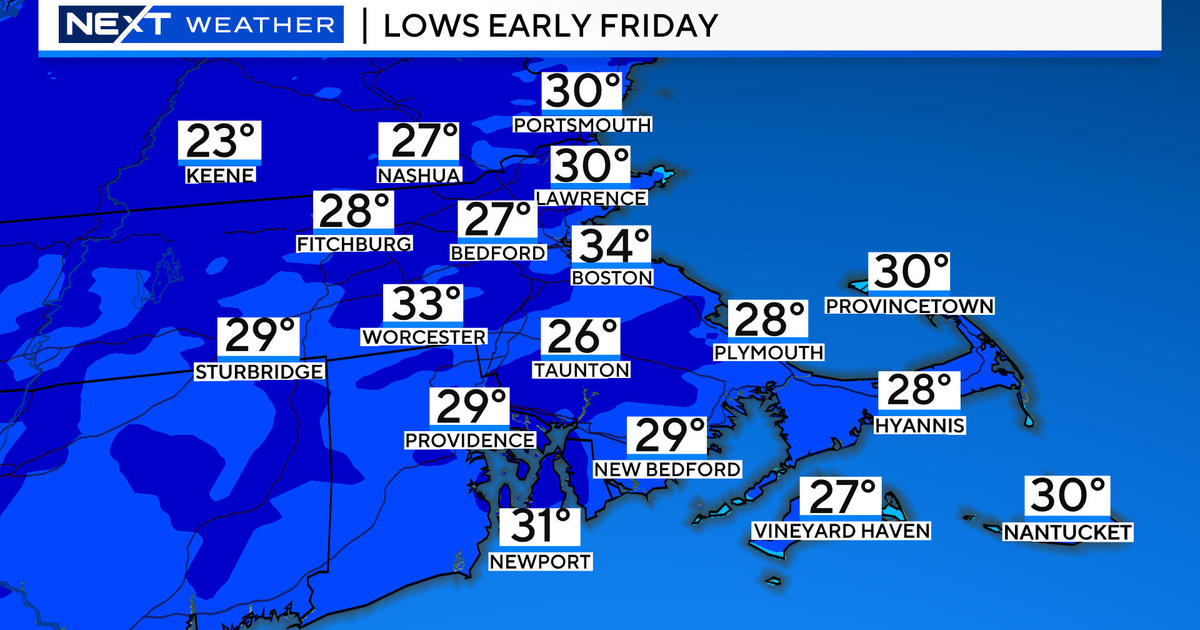A Tale Of Two Extremes
Find Eric Fisher on Twitter and Facebook
Running outside feels like you're training for a Nordic biathlon. Walking the dog takes a few minutes of working yourself up before opening the door. Snow piles threaten to stare at you past Easter. And you can count the number of hours we've spent above 50 degrees since Christmas on two hands. It's fair to say this recent stretch has been a little tough to take. February was downright historic for its persistent cold, producing the coldest month ever recorded in Worcester and Hartford. Plus, the 2nd coldest in Boston (although I would contend that since observations moved to Logan Airport after the top month of February of 1934 that this February was likely colder for the vast majority of the area). Although not quite as impressive, March has been no picnic. We're on pace for one of the coldest March's on record in Boston since observations moved to Logan in 1936. And to sum it all up - people are pretty sick and tired of winter.
What thickens this plot even more is the fact that we had the complete opposite end of the spectrum just 3 years ago. In March 2012, the country saw arguably the most unusual, record shattering late winter warmth that's ever been observed in the modern era. Over 15,000 (not a typo) warm temperature records were set in the U.S. alone. This exact week in March of 2012, the coldest high temp we saw in Boston was 67! We haven't seen temps that warm here since before Halloween. The 83º reading on March 22nd was the first time Boston had topped 80 so early in the season in 91 years. Almost ridiculous to think the same date this year (Sunday) the high will be 34. A ~50 degree difference.
There wasn't any snow on the ground locally, but to our north 26" of snow melted in Caribou, ME in just a week (which featured highs into the 70s). Imagine if every scrap of snow and ice in your yard currently vaporized over a few days. Chicago set record highs for 9 straight days with the 80s poking up into northern Michigan. In all, 24 states saw their warmest March ever recorded, with another 12 seeing a top three all-time warm March.
People can debate back and forth, but I'd certainly contend that the record warmth was a more impressive event. Never before have we seen records consistently blown away for days on end by such wide margins. Snow basically disappeared overnight across the norther tier states. Overnight low temps were breaking daytime highs. Numerous all-time record highs were set. And the heat was over a MUCH larger area than the cold we're seeing here in 2015. Granted extreme winter warmth is a little easier to take than endless cold and snow. "Record pleasant weather, flowers in bloom!" doesn't exactly scream hardship (although it did destroy the maple season in New York and New England).
Above you can see all the statewide rankings comparing 2 extreme winter months, and it becomes pretty clear which one had a larger magnitude. While brutal, the cold this February wasn't enough to produce any coldest months on record (though a very respectable 9 states with their second coldest). You also notice that while it has been very cold in the east, the west has been cooking with several states seeing their warmest February ever recorded while they also face severe drought. One important thing to note while looking at both of these is that it's difficult to cover all of the Lower 48 with record cold at once. That's because in general you're going to need continental polar air to do it. It's tough to bring that chill straight down from the arctic and have it spill on both sides of the Continental Divide.
The two maps above are temperature anomaly comparisons (departures from average) comparing March 2012 (top) and the year to date here in 2015 (bottom). Interesting to note that it's the United States that keeps getting the brunt of the extremes. In 2012 there was major cold and a dumping of snow in Alaska (Anchorage set it's all-time snowiest season mark with over 133"...plus over 400" of snow in Valdez). On the flip side, the heat went berserk in the Lower 48. This year the eastern U.S. sticks out like a frozen thumb compared to the rest of the globe.
Why do we care? Yes, there's a lot of focus on 'extreme events' when it comes to the weather. There are a couple of reasons for that. First of all, it's these wild swings that capture the attention of many meteorologists and even casual weather observers. When it's very snowy, cold, hot, rainy, etc everyone takes notice. But the other, more important, reason is that months like these tell us how we should be preparing in the future.
Averages are useful for things like plant hardiness zones, knowing when it's a good time to plan a vacation, or when we're turning a corner. But it's the extremes that give us the goal posts to plan for our lives and our infrastructure. We need to know how hot it can get, how strong storms can become, how high surge can pile up, or how quickly snow can bury us. Once the limits are learned, the best practice is to always plan for something a little worse. That way you're not caught off guard by these unusual types of months or events, and hopefully we can limit our exposure and risk to weather that always has been and will continue to be extreme at times!
